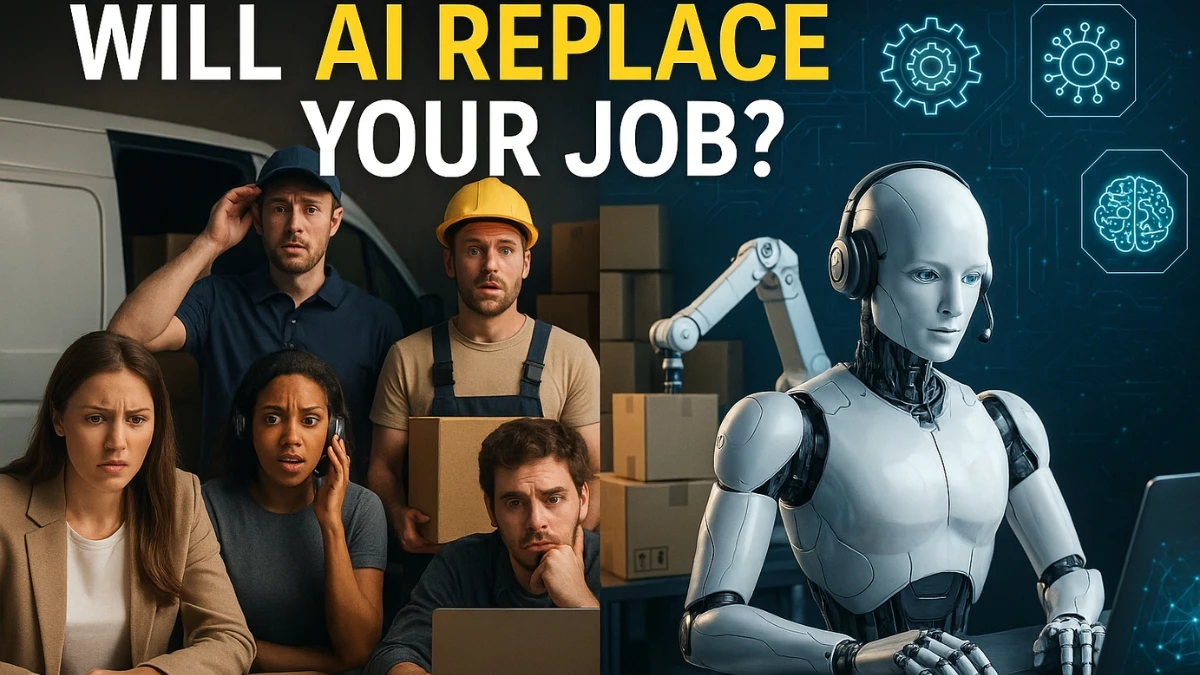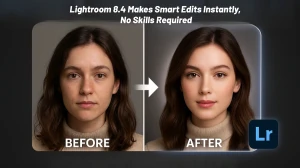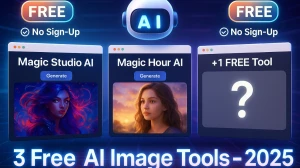What Kind of Jobs Will AI Replace in the Next 5 Years?
Artificial Intelligence (AI) has already started to revolutionize industries across the globe, and its impact on the workforce will only accelerate in the coming years. With AI technologies advancing rapidly, many job roles, especially those involving repetitive tasks, are increasingly being automated. In this article, we will explore which jobs are most vulnerable to AI replacement in the next five years.
1. Administrative and Clerical Jobs
One of the most noticeable areas where AI is making strides is in administrative and clerical tasks. AI-powered tools like chatbots, virtual assistants, and automated scheduling software are already handling routine office tasks that once required human intervention.
For instance, AI tools can now manage basic email correspondence, organize schedules, and conduct data entry tasks more efficiently than humans. Microsoft 365 Copilot and similar productivity tools are designed to enhance office work by automating mundane activities, reducing the need for administrative assistants and clerks.
Future Outlook: As these tools become more advanced, the demand for traditional secretarial and data entry roles will likely decline significantly in the next five years.
2. Customer Service Jobs
AI is already significantly transforming customer service roles. With the rise of AI chatbots, virtual assistants, and automated call centers, many customer-facing tasks are now being automated.
- Chatbots powered by AI can provide 24/7 support, answer frequently asked questions, and even resolve customer issues without any human intervention.
-
Automated call centers can handle thousands of calls simultaneously, reducing the need for human operators.
AI tools can also analyze customer feedback and sentiment, further reducing the need for human involvement in customer service.
Future Outlook: Routine customer support and administrative tasks will be increasingly managed by AI, leading to fewer opportunities for traditional call center agents and customer service representatives.
3. Drivers and Transportation Jobs
The transportation industry is one of the most impacted sectors by AI development. Self-driving vehicles, powered by AI, are expected to replace a significant number of driving-related jobs.
-
Truck drivers may see their roles diminished due to the rise of autonomous freight systems, capable of transporting goods across the country with minimal human supervision.
-
Ridesharing companies, such as Uber and Lyft, are also working on developing self-driving cars, which could eliminate the need for human drivers in the near future.
Future Outlook: While self-driving technology is not yet fully realized, it is anticipated that AI-powered vehicles will replace truck drivers and rideshare drivers within the next five to ten years.
4. Manufacturing and Warehouse Jobs
AI-powered robots and automation systems are rapidly transforming the manufacturing and warehousing industries. These machines can handle tasks such as assembly, packaging, and quality control with greater efficiency and precision than humans.
-
Robots in manufacturing are already capable of assembling products, welding, and even performing intricate tasks with minimal human oversight.
-
AI systems in warehouses can manage inventory, prepare shipments, and track products autonomously.
Future Outlook: As these technologies evolve, traditional assembly line workers and warehouse staff will likely face job displacement in favor of AI-driven processes.
5. Legal and Paralegal Jobs
AI is making significant inroads in the legal profession as well. Generative AI and machine learning tools can now assist with document review, contract analysis, and legal research, all of which were traditionally tasks handled by paralegals and legal assistants.
For instance, GPT-4, the latest language model from OpenAI, can analyze complex legal documents and even pass the Uniform Bar Examination with high marks. These tools can automate routine legal tasks, such as:
-
Reviewing contracts
-
Searching for relevant case law
-
Performing legal research
Future Outlook: In the next five years, we can expect AI tools to perform a substantial portion of legal support tasks, leading to fewer opportunities for paralegals and legal assistants.
6. Marketing and Content Creation Jobs
AI is increasingly being used in the marketing and content creation industries. With tools like ChatGPT and Google Gemini, AI-generated content is now common for tasks like writing articles, creating marketing emails, and even generating product descriptions.
-
AI tools can now personalize marketing content for individual customers, write SEO-optimized copy, and help with social media management.
-
For content writers, AI can quickly generate written text, assist with brainstorming ideas, and even create entire blog posts or articles based on basic input.
Future Outlook: While creative writing may not be fully replaced, AI will automate many aspects of content creation, making it harder for entry-level content writers to remain competitive without developing specialized, creative skills.
7. Financial Services Jobs
In the finance industry, AI is making waves in tasks such as financial analysis, risk assessment, and customer support.
-
AI tools can analyze financial data, predict market trends, and even provide personalized financial advice to customers, reducing the need for traditional financial advisors.
-
Robotic process automation (RPA) can handle repetitive tasks, such as data entry, invoicing, and fraud detection, which were traditionally performed by humans.
Future Outlook: As AI-driven tools become more sophisticated, we can expect analysts, accountants, and financial advisors to face increased competition from AI systems that can perform many tasks faster and more accurately.
8. Healthcare and Medical Jobs
While AI is transforming healthcare, it is unlikely to replace doctors and nurses completely. However, roles that involve routine tasks like medical transcription, diagnostic imaging, and data entry could be significantly reduced.
-
AI-powered diagnostic tools can analyze medical images to detect diseases like cancer, often with greater accuracy than human doctors.
-
Virtual assistants in healthcare can help schedule appointments, send reminders, and even offer basic medical advice.
Future Outlook: While doctors and nurses will still be essential, AI will increasingly assist with routine tasks, leading to reduced demand for some support roles in the healthcare sector.
Will AI Create New Job Opportunities?
While AI will replace many jobs, it is also expected to create new opportunities. The demand for AI specialists, data scientists, and machine learning engineers is expected to grow as industries look for experts to develop, manage, and maintain AI systems.
Moreover, jobs that require empathy, creativity, and complex problem-solving will continue to thrive. Human workers who adapt to AI by learning how to collaborate with machines will find new roles in industries like healthcare, education, and technology.
Frequently Asked Questions- FAQs
Which jobs will AI replace first?
Jobs that involve repetitive tasks and data processing are the most vulnerable. This includes customer service roles, administrative positions, and transportation jobs.
Will AI replace healthcare workers?
While AI will automate certain tasks like diagnostic support and medical imaging, roles requiring emotional intelligence, such as doctors and nurses, are less likely to be replaced. AI will more likely assist healthcare workers, rather than replace them.
How can workers prepare for AI's impact?
Workers can prepare by embracing lifelong learning, developing AI skills, and focusing on industries that are less likely to be automated, such as creative fields, education, and healthcare.
Disclaimer
The information provided in this article is for informational purposes only. Predictions about AI and its potential impact on the workforce are speculative and depend on various factors, including technological advancements, economic conditions, and regulatory frameworks. Individuals should stay informed about emerging technologies and continuously update their skills to adapt to future changes in the job market.






